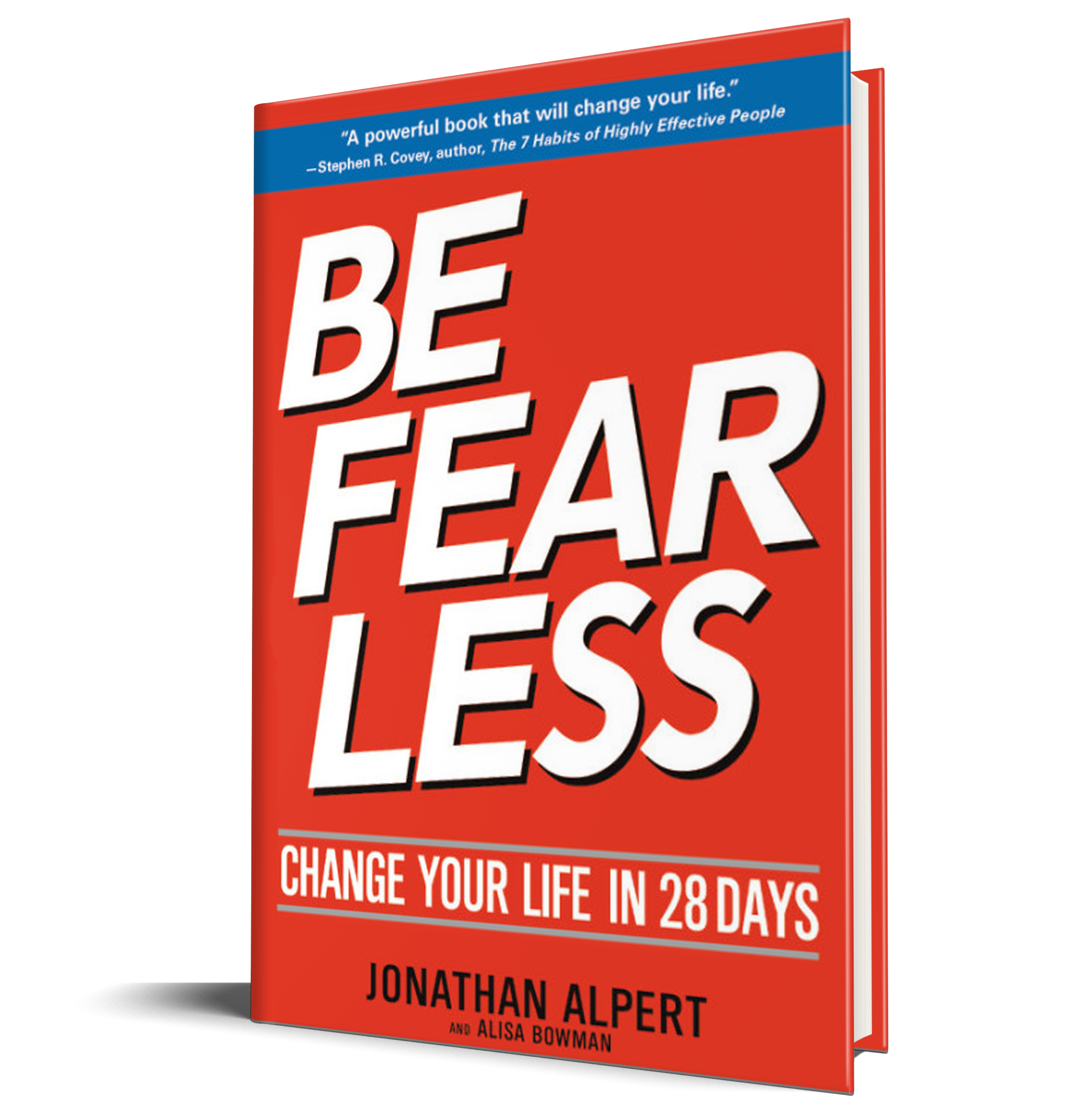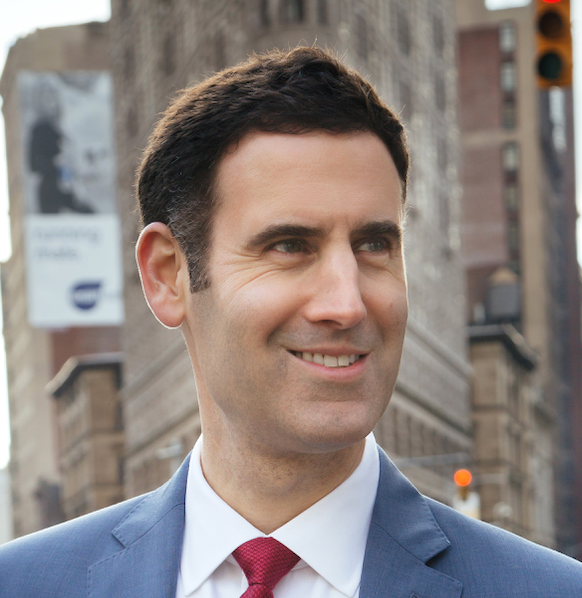When it comes to making sustainable changes, starting small is key.
Thrive Global invites voices from many spheres to share their perspectives on our Community platform. Community stories are not commissioned by our editorial team, and opinions expressed by Community contributors do not reflect the opinions of Thrive Global or its employees. More information on our Community guidelines is available here.
By
- Jonathan Alpert, Psychotherapist, executive performance coach, and author of Be Fearless: Change Your Life in 28 Days. Twitter: @JonathanAlpert

Getty Images
As we leave behind a year that undoubtedly was a difficult one for many and enter 2022, I encourage you to take a different approach to resolutions. Rather than getting caught up in the needless pressure to massively transform yourself, slow down and think about things in a way that will allow you to make smart, healthy, and small changes that will last beyond just the next few weeks. Changes that will reinforce behaviors and help keep you motivated beyond January.
1. Drop the word resolution. The word resolution might suggest that there’s a problem or shortcoming, or that something is broken. Know that you are not broken or flawed. Perhaps there are areas to improve or make even better, however, you are neither broken nor in need of fixing.
2. Think beyond January. Good behaviors and healthier behaviors shouldn’t have an expiration date on them. So often I’ve heard the term “dry January” and thought to myself, what happens come February? Does that mean you binge or go back to unhealthy drinking habits? For many people it does. They feel they have accomplished what they set out to do (avoid alcohol for a month) and can then resume unhealthy levels of drinking, or worse even, make up for the time they didn’t drink. Know the difference between healthy and unhealthy and aim for balance.
3. Set goals and change behaviors for YOU, not for your friends or because society says it’s a good idea. For example, if you’re trying to use social media less, then set limits that work for you, not for a friend. The buddy system is good, but at the end of the day, you have to do what works best for you. Keep in mind, internal motivation is far more powerful and lasting than those driven by external motives.
4. Strive for something positive. So often people feel guilty and lousy about themselves and that informs their desire to change. They might vow to never drink again after a night of over-indulgence or to never eat sweets again after have one too many cookies. In the short term, making changes out of desperation can be powerful, but ultimately, those made out of inspiration are far more lasting. So keep that in mind as you put together a long term plan.
5. Set realistic goals. Often people set lofty or near impossible goals. Dropping 50 pounds by May or becoming fluent in 5 languages by Summer may not be so doable. Setting yourself up for failure is no way to feel good about yourself. In fact, near impossible goals might lead you to beat up on yourself and they can end up being a detriment to your mental health. Instead set yourself up for success with small and achievable goals.
6. Be specific and detailed. Way too often goals lack detail and specificity. To say you want to get in shape is good, however, planning to go to the gym Monday, Tuesday and Friday for 30 minutes each day is better. The more detail there is, the easier it is to conceptualize and plan to actually do the task. Think of it this way: If you had to build a piece of IKEA furniture without instructions, you’d probably make a strong attempt, give it your best, but eventually get frustrated and lose interest in the goal of assembling the furniture. If though, you had instructions to follow, your goal feels more within reach and possible to accomplish.
Finally, if you find yourself falling off the wagon come mid-January, don’t wait until 2023 to start over again. Every week, and every day, presents a new opportunity for change. There really isn’t anything magical about January 1st.
or more tips on living a healthy stress free life check out my book Be Fearless: Change Your Life in 28 Days.


Jonathan Alpert, Psychotherapist, executive performance coach, and author of Be Fearless: Change Your Life in 28 Days. Twitter: @JonathanAlpert
Jonathan Alpert is a psychotherapist, columnist, performance coach and author in Manhattan.
As a psychotherapist, he has helped countless couples and individuals overcome a wide range of challenges and go on to achieve success. He discussed his results-oriented approach in his 2012 New York Times Opinion piece, “In Therapy Forever? Enough Already”, which continues to be debated and garner international attention.
Alpert is frequently interviewed by major TV, print and digital media outlets and has appeared on the Today Show, CNN, FOX, and Good Morning America discussing current events, mental health, hard news stories, celebrities/politicians, as well as lifestyle and hot-button issues. He appears in the 2010 Oscar-winning documentary, Inside Job commenting on the financial crisis.
With his unique insight into how people think and their motivations, Alpert helps clients develop and strengthen their brands. He has been a spokesperson for NutriBullet, Liberty Mutual insurance, and Enterprise Rent-A-Car.
Jonathan’s 2012 book BE FEARLESS: Change Your Life in 28 Days has been translated into six languages worldwide. Alpert continues to provide advice to the masses through his Inc.com, Huffington Post, and Thrive columns.
@JonathanAlpert
Share your comments below. Please read our commenting guidelines before posting. If you have a concern about a comment, report it here.







